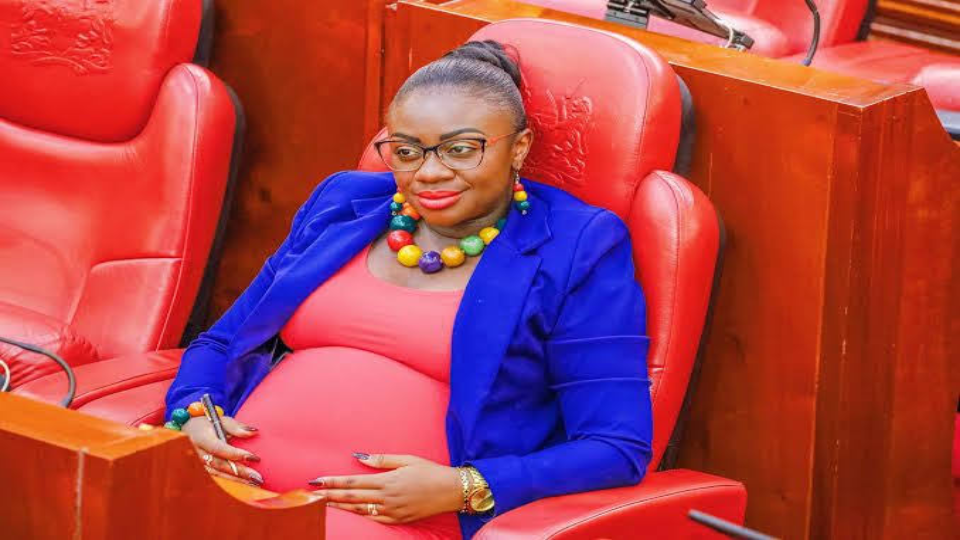High Court Rejects Gloria Orwoba’s Petition Against UDA Disciplinary Action
On August 13, 2025, former nominated Senator Gloria Orwoba faced a significant setback when the High Court in Nairobi struck out her petition challenging the United Democratic Alliance (UDA) party's disciplinary proceedings against her. The court, presided over by Justice Lawrence Mugambi, ruled that Orwoba's application was improperly filed and constituted an abuse of the court process. Additionally, the court ordered her to pay legal costs to UDA, further compounding her challenges.
The ruling stemmed from Orwoba's attempt to block UDA's disciplinary actions, which culminated in her expulsion from the party and the subsequent vacancy of her Senate seat. The court determined that Orwoba failed to follow the proper legal channels by not first addressing her grievances through the Political Parties Disputes Tribunal (PPDT), as mandated by Section 39 of the Political Parties Act. Justice Mugambi emphasized that the High Court should only be approached as a last resort or on appeal from the PPDT, not as the initial venue for such disputes.
Orwoba had filed her petition on May 15, 2025, seeking to halt UDA's disciplinary hearing scheduled for the following day. She argued that the process lacked clear disciplinary rules, violating her rights to a fair trial and fair administrative action. Orwoba claimed the proceedings were politically motivated, driven by accusations of disloyalty to UDA and alleged ties to a rival political faction. She further contended that the disciplinary actions were a witch-hunt aimed at silencing her.
The court, however, found that Orwoba's simultaneous pursuit of the same dispute before both the PPDT and the High Court undermined the legal process. Justice Mugambi noted that by engaging the PPDT, Orwoba had implicitly acknowledged its jurisdiction and should have exhausted that avenue before escalating the matter to the High Court. The judge stated, "Having chosen to pursue the dispute before the tribunal, the petitioner recognizes its jurisdiction. She should stay that course and only, if dissatisfied with the outcome, approach the High Court."
The court also addressed Orwoba's allegations of contempt against UDA, specifically regarding a conservatory order issued on May 15, 2025, which restrained the party's disciplinary committee from proceeding with matters outlined in a May 7 letter. Justice Mugambi found no evidence that UDA had violated the specific terms of the order, dismissing Orwoba's claims of contempt.
UDA, in response to Orwoba's petition, challenged the High Court's jurisdiction and defended its disciplinary process. The party argued that Orwoba's actions, including her attendance at a homecoming event for former Interior Cabinet Secretary Fred Matiang'i and her public criticism of President William Ruto's labor mobility program, constituted gross misconduct and a breach of the party's code of conduct. These actions led to her expulsion, which was ratified by UDA's National Executive Committee.
The High Court's decision followed a series of legal and political challenges for Orwoba. Earlier in 2025, she faced a six-month Senate suspension for gross misconduct, upheld by the same court, after she failed to defend herself before the Senate Powers and Privileges Committee. Orwoba was accused of making unsubstantiated claims about sexual favors by parliamentary officials and posting disrespectful messages about fellow senators on a Senate WhatsApp group. Additionally, she was ordered to pay KSh 10.5 million in damages to Senate Clerk Jeremiah Nyegenye for defamation, following allegations of sexual harassment that the court deemed malicious.
Despite temporary relief in May 2025, when the High Court suspended UDA's expulsion decision pending her petition, Orwoba's latest legal defeat has solidified her removal from both the party and the Senate. Senate Speaker Amason Kingi declared her seat vacant on May 21, 2025, and UDA nominated Consolata Wabwire as her replacement. Orwoba's legal battles have drawn significant attention, with her maintaining that her expulsion and Senate ouster were politically motivated efforts to suppress her advocacy, particularly on issues of sexual harassment and parliamentary transparency.
The ruling marks a critical juncture in Orwoba's political career, highlighting the complexities of internal party disputes and the legal frameworks governing them in Kenya. As she navigates these challenges, Orwoba has vowed to continue her fight, including plans to appeal the defamation judgment and pursue further legal recourse to address her grievances.


